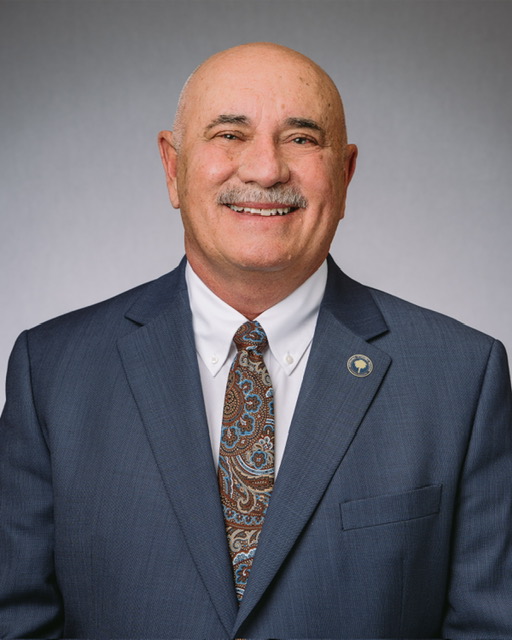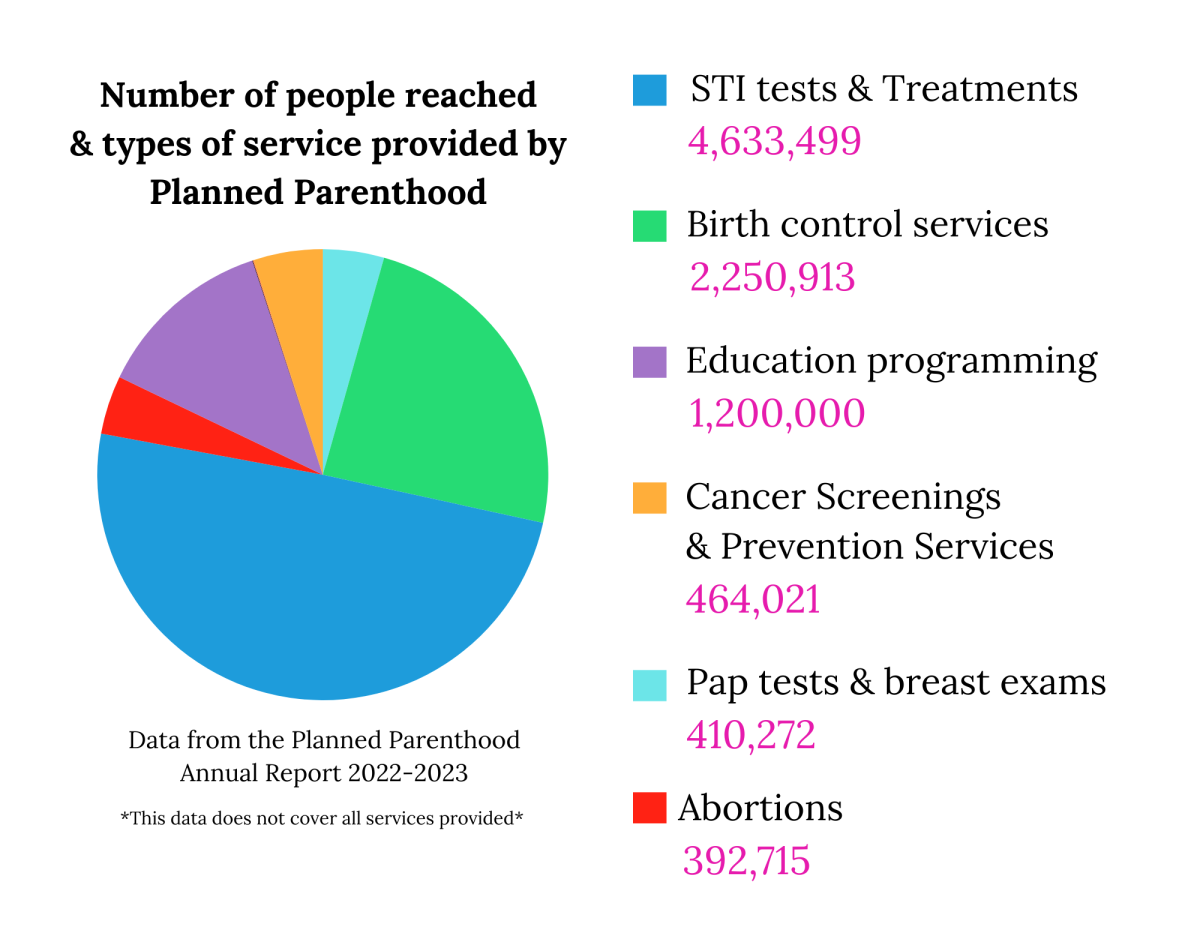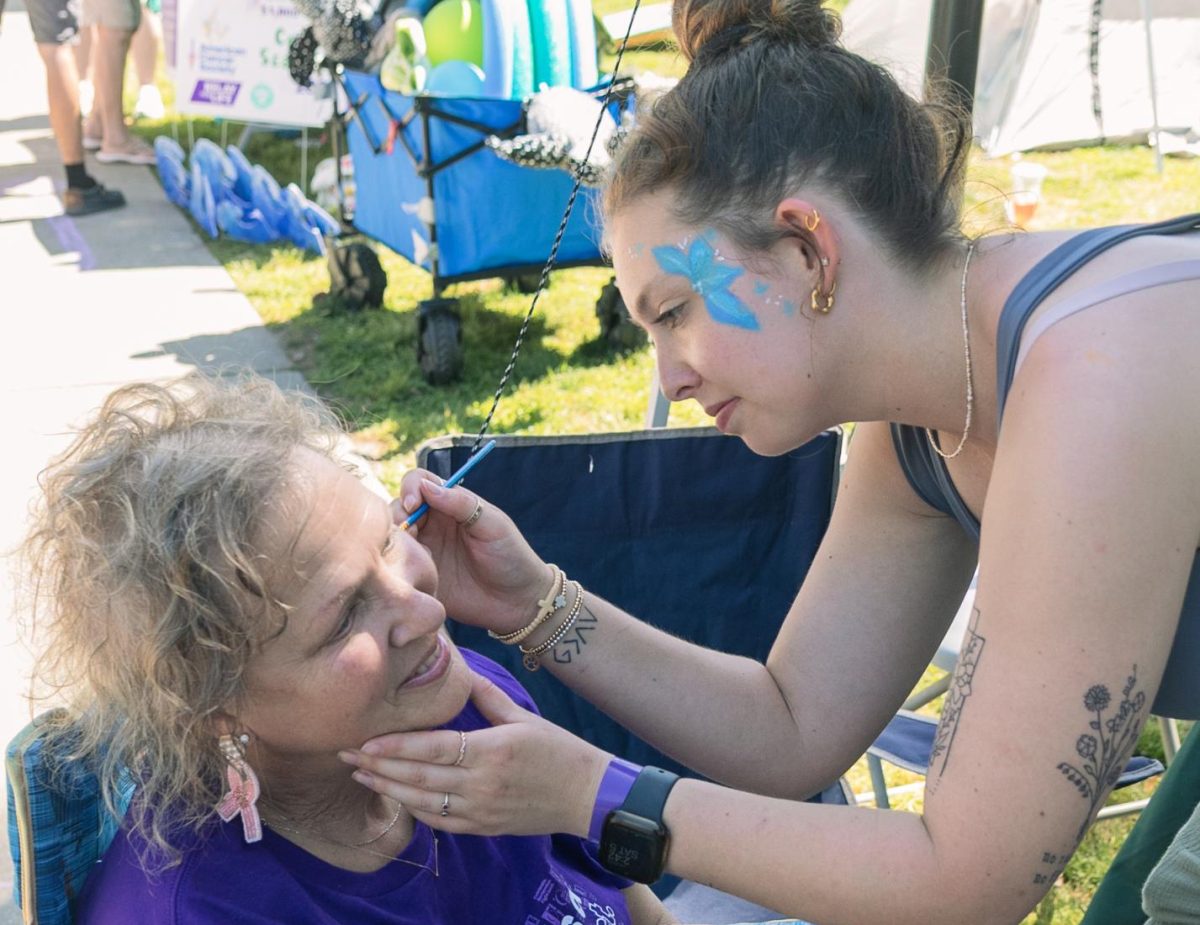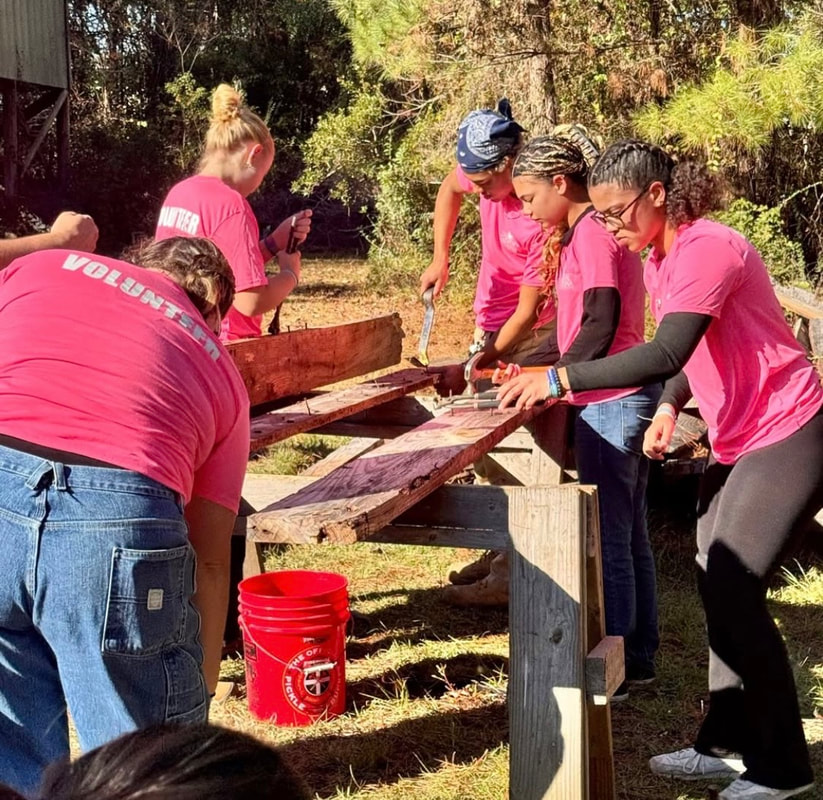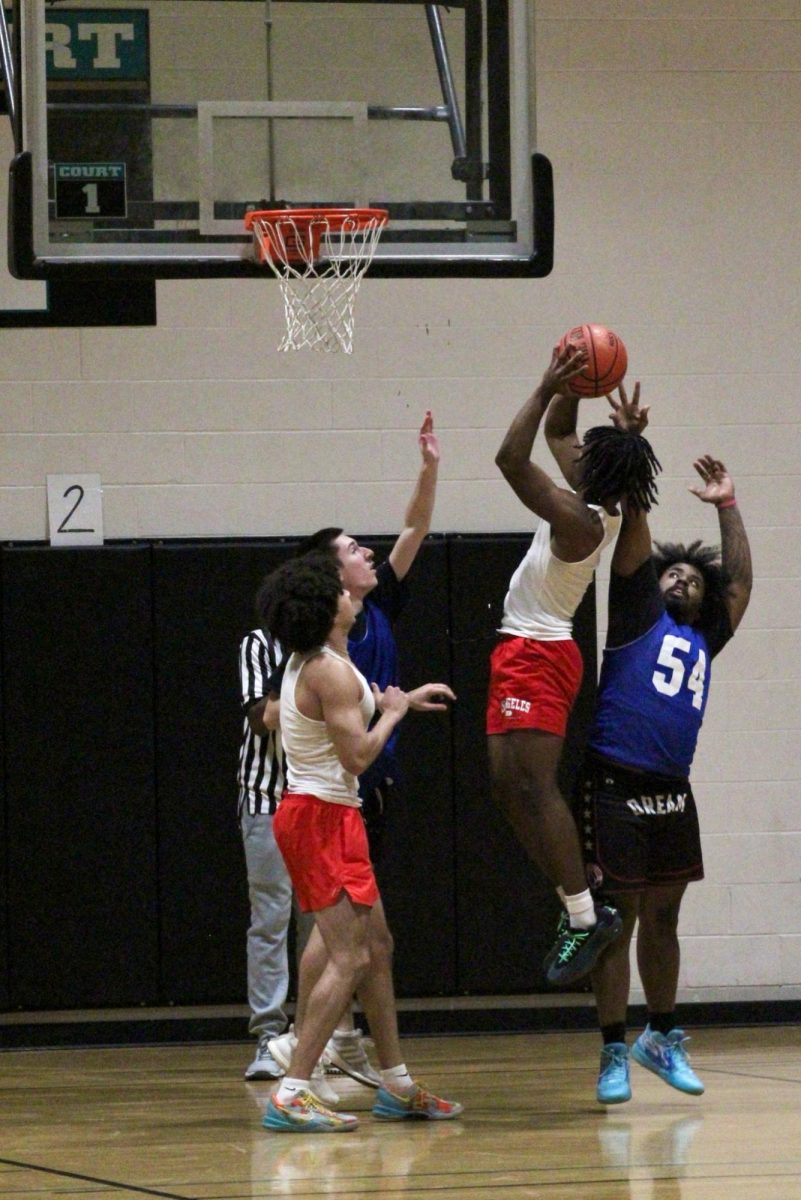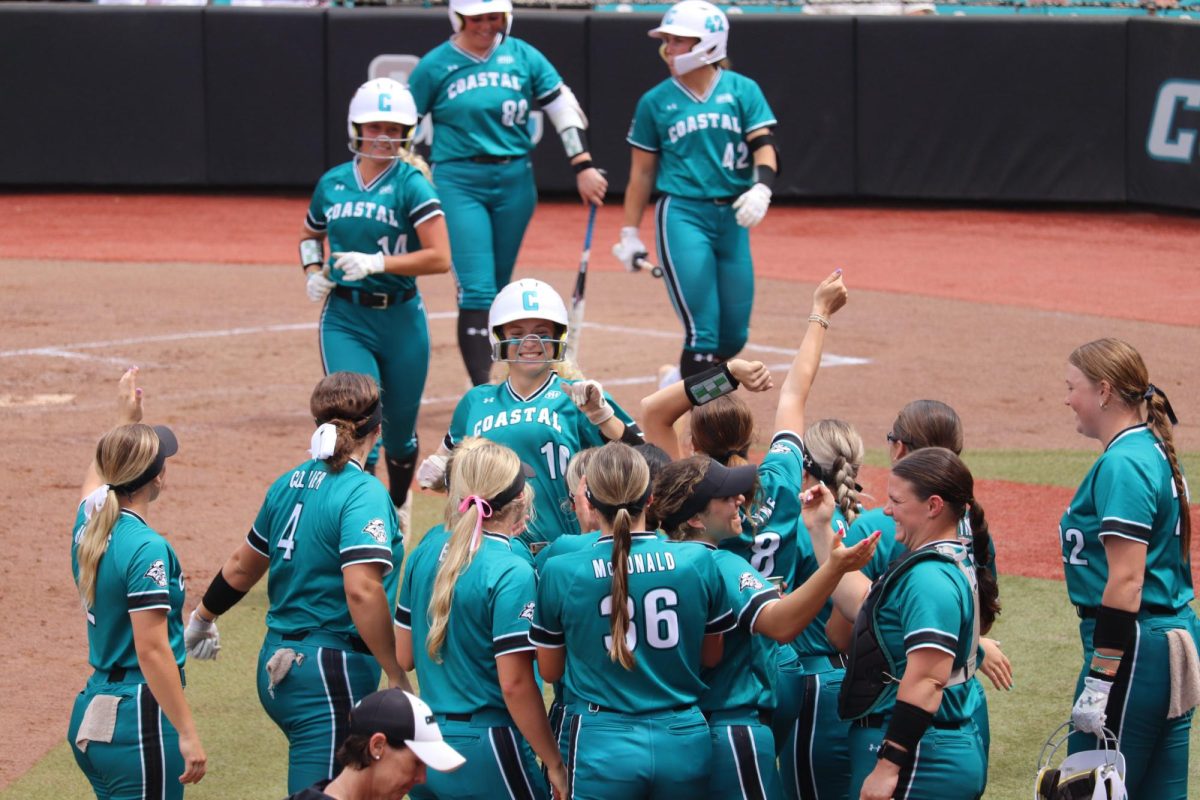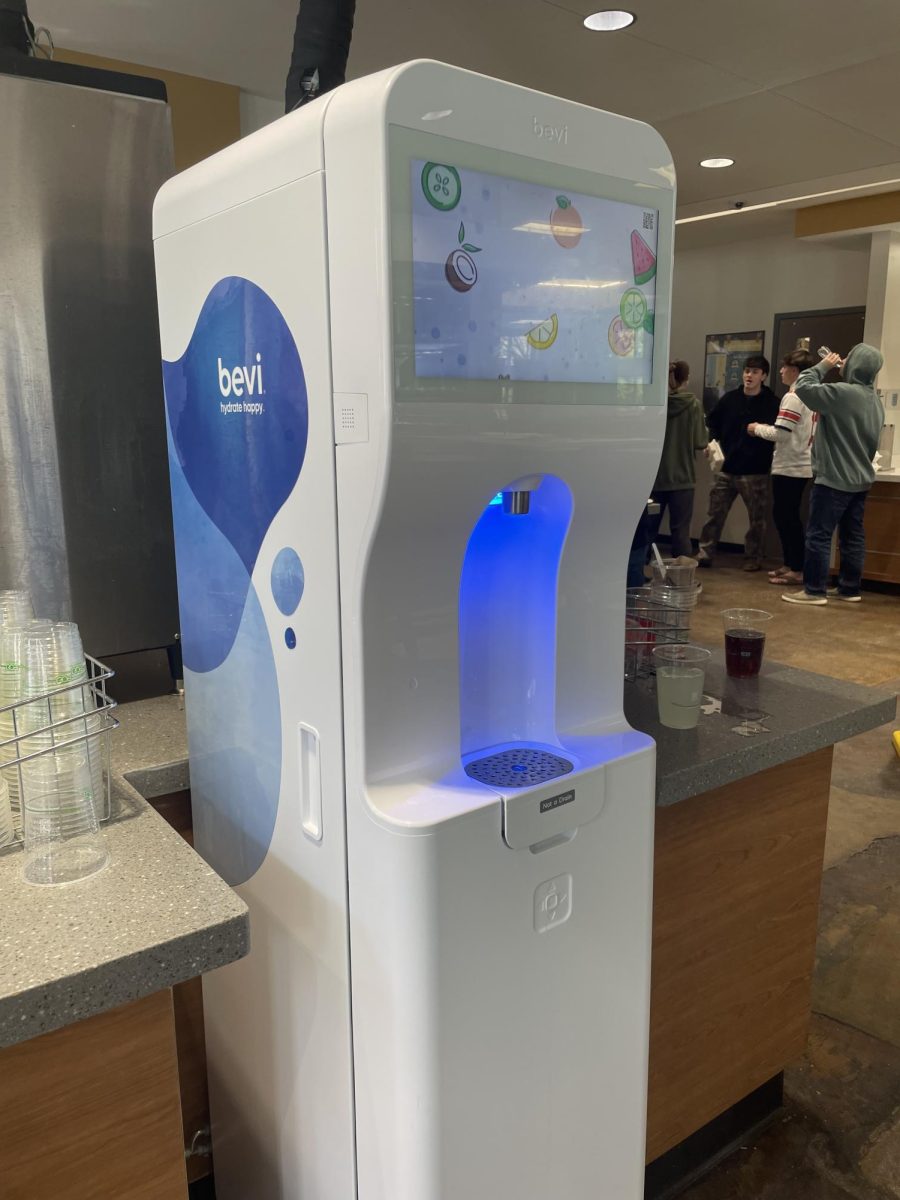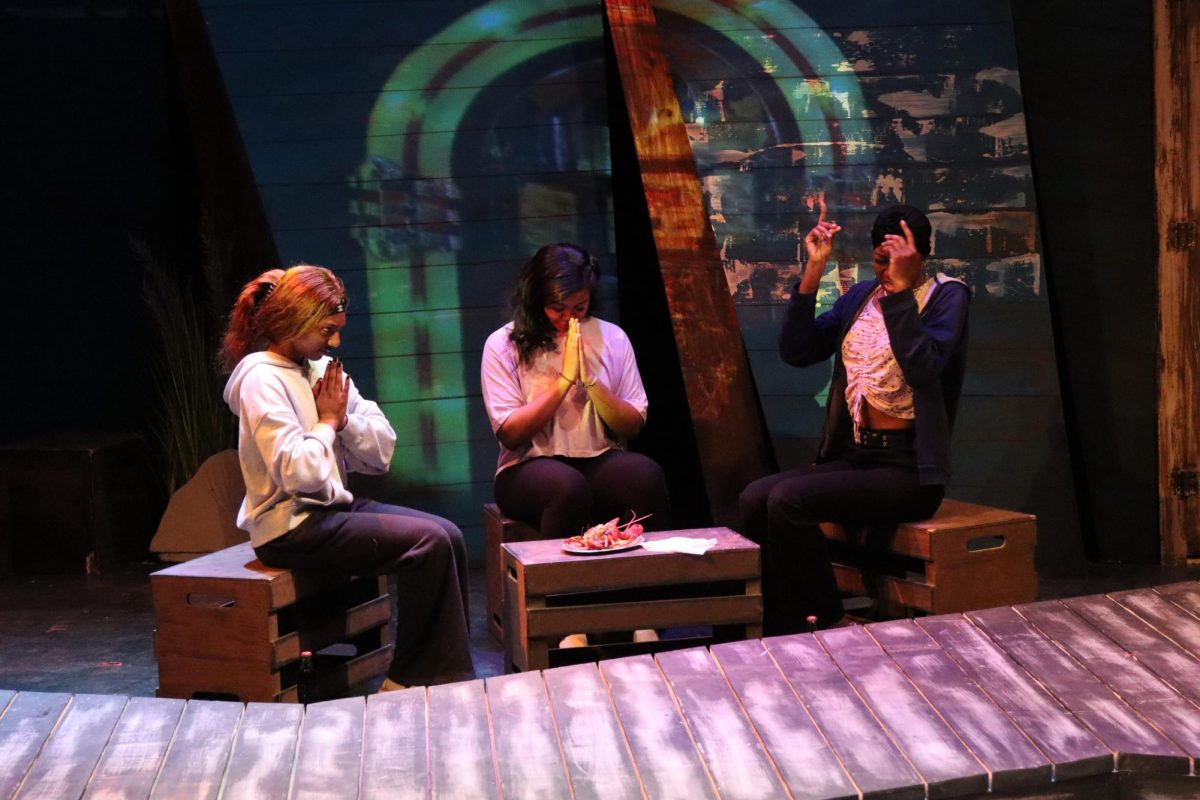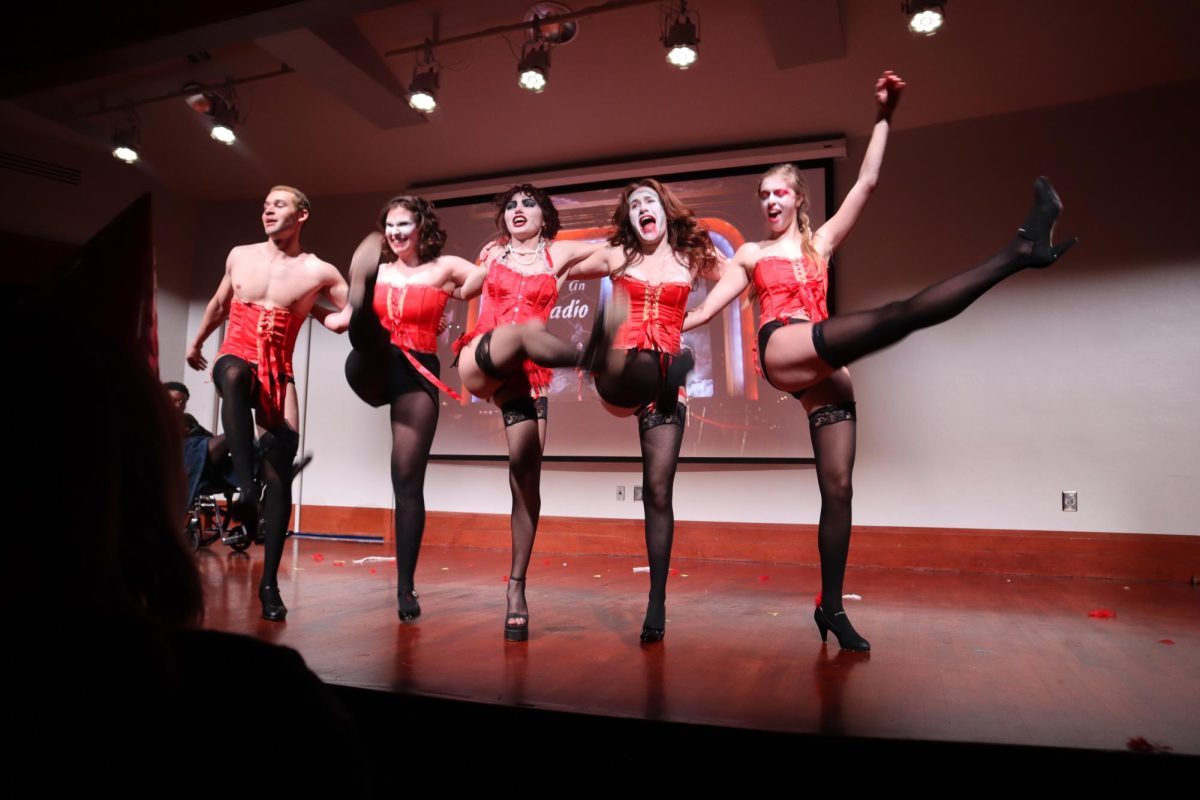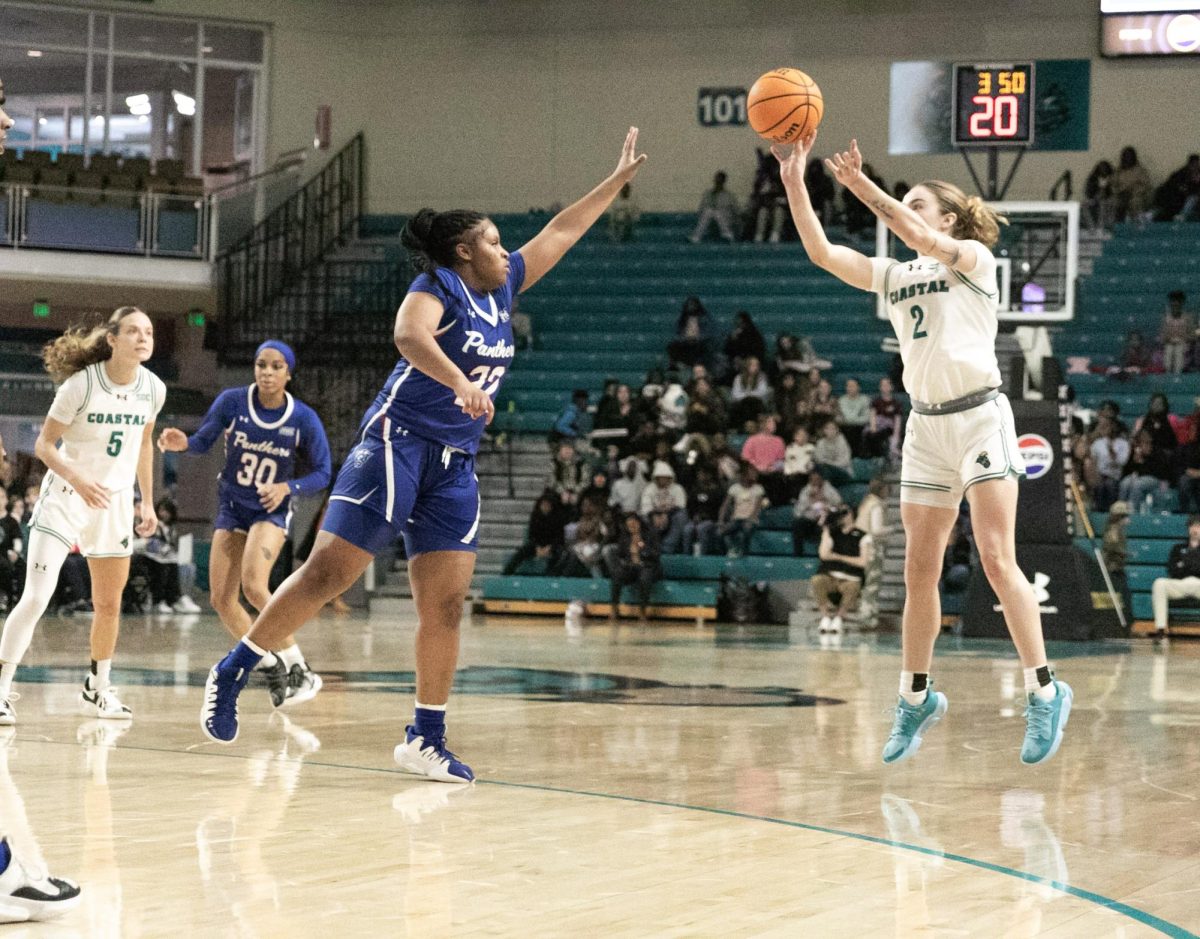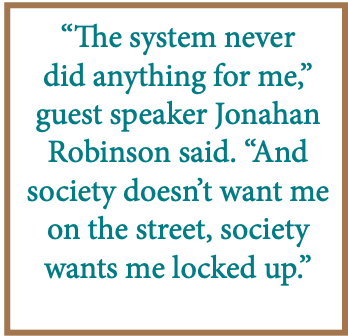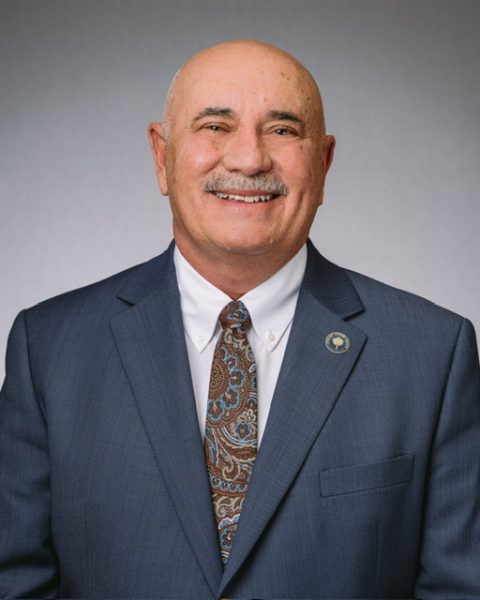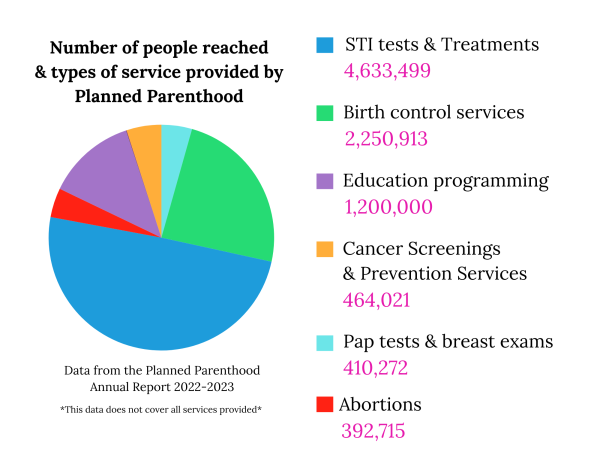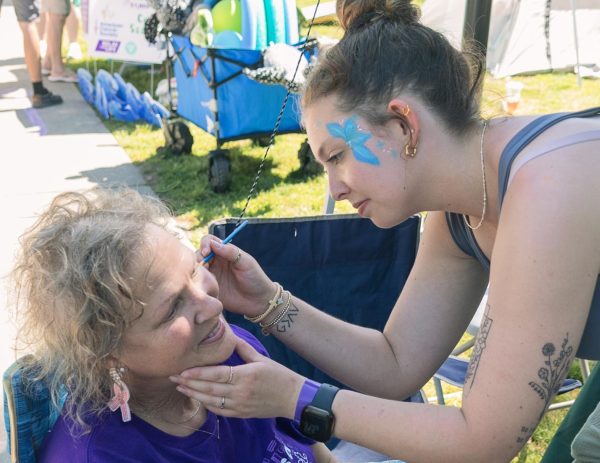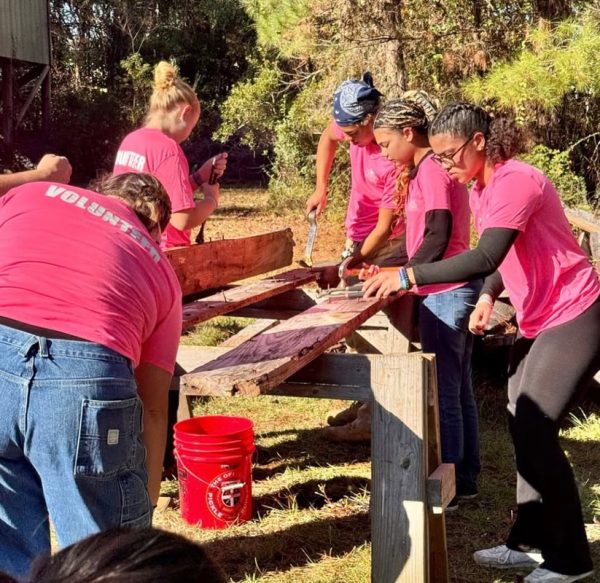System designed to be broken
Edwards College presents “Ethics of Incarceration” panel
The Edwards College of Humanities and Fine Arts (EHFA) held an “Ethics of Incarceration” panel on Jan. 19 where guest speakers and Coastal Carolina University faculty shared their knowledge of faults in the prison industry.
The event hosted by the EHFA and Jackson Family Center for Ethics and Values featured panelists such as professors Jennifer Schlosser and Emily Humbert and guest speakers Jonathan Robinson and Daryl Gay. Their discussion was led by Julianna Oxley, director of the Jackson Family Center, focused on issues in the prison system and its effects on incarcerated people.
Jackson Fellow and visiting assistant professor Emily Humbert said the most pressing issues in the prison system include livable wages, housing, cost of incarceration, bail amounts and the health and safety of those incarcerated.
Jennifer Schlosser, associate chair of sociology and criminal justice, said the prison system is working as it was intended to.
“I don’t think it’s broken so much as it is designed to be broken,” Schlosser said.
She said the prison industry is tied to capitalism in the way that it is built to make money. She said the more people being incarcerated means the more money state representatives, prison wardens and board members in private prison companies are receiving.
Having spent 53 years in institutionalized prisons, Robinson had insight into the wrongdoings of the system including how they fail to help inmates turn their lives around. He said the institution is broken and needs to be fixed.
“The system never did anything for me,” Robinson said. “And society doesn’t want me on the street, society wants me locked up.”
Robinson said he was stuck in his old habits and would often end up being arrested again shortly after being released. Due to the lack of educational resources and knowledge of available programs, many inmates continued to commit crimes in the system and often struggle to find their footing after their release.
Robinson said he depends on the next generation to recognize and improve upon these faults.
Gay said he also had experience with incarceration and said the hardest part about the transition out of prison was the lack of support and access to resources on the outside. He said he had trouble adjusting to having freedom again, and still felt like he had to ask for permission to do simple tasks.
Junior forensic psychology major Kat Blanchard said attending this panel helped increase knowledge on the topic and spark conversation about what can be done about it.

I'm a senior communication major, and I was previously Assistant Editor– which we have split up into two positions continuing forward. The newspaper...
